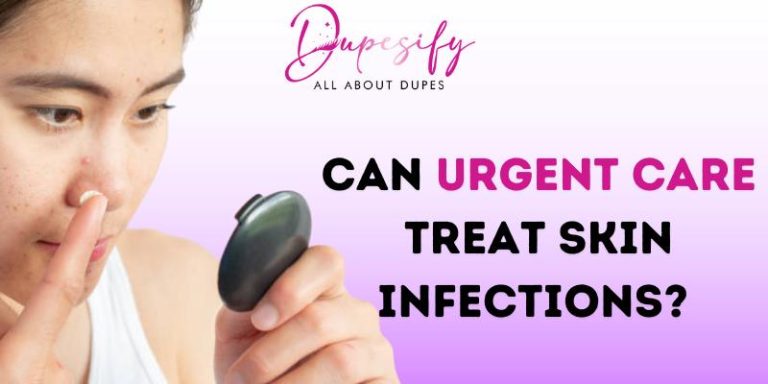What are the Benefits of Using Retinol in Skincare? Unlock Secrets

Retinol is a highly effective ingredient in skincare. People are curious about it and want to know the exact answer to the question, What are the benefits of using retinol in skincare? We cover all of this.
Retinol offers numerous benefits, making it a popular choice for those looking to improve the appearance and health of their skin. This vitamin A derivative works by increasing cell turnover and stimulating the production of new skin cells, resulting in smoother, healthier-looking skin.
In this article, we will explore the benefits of using retinol in skincare, how it works, and best practices for incorporating it into your routine. We will also discuss potential side effects and precautions so that you can make an informed decision about whether retinol is right for you.
Unlocking Youthful Skin – Incredible Benefits of Using Retinol in Skincare
This is the right place for you. Here we will briefly discuss and provide you an accurate answer to the question, What are the benefits of using retinol in skincare?
Benefits of Retinol
Retinol is a powerful ingredient in skincare that offers a variety of benefits for the skin. Here are five key benefits of using retinol in your skincare routine
- Increases Collagen Production
Collagen is a protein that gives the skin its structure and elasticity. As we age, our bodies produce less collagen, which can lead to fine lines, wrinkles, and sagging skin. Retinol helps to increase collagen production, which can make the skin look firmer and more youthful.
- Reduces Fine Lines and Wrinkles
Retinol is a popular anti-aging ingredient because it can help to reduce the appearance of fine lines and wrinkles. It does this by increasing cell turnover and stimulating collagen production, which can smooth out the skin and make it appear more even and youthful.
- Improves Skin Texture and Tone
Retinol can also help to improve the texture and tone of the skin. It can help to exfoliate the skin and remove dead skin cells, which can make the skin appear smoother and more even. Additionally, retinol can help to reduce the appearance of dark spots and hyperpigmentation, which can even out the skin tone.
- Fades Hyperpigmentation
Retinol is a powerful ingredient for fading hyperpigmentation and dark spots. It does this by increasing cell turnover and exfoliating the skin, which can help to remove pigmented cells and reveal brighter, more even-toned skin.
- Prevent Acne Breakouts
Retinol can also be beneficial for those who are prone to acne breakouts. It can help to unclog pores by increasing cell turnover and exfoliating the skin, which can prevent the buildup of dead skin cells and oil that can lead to breakouts. Additionally, retinol has anti-inflammatory properties that can help to calm and soothe the skin.
Here is our another guide on Is Cetaphil Moisturizing Cream Good For Acne? Benefits & Tips
How Retinol Works
Retinol works in a couple of different ways to benefit the skin. Here are two key mechanisms by which retinol can improve the appearance and health of the skin
- Stimulates Collagen Production
Retinol is a powerful ingredient for stimulating collagen production in the skin. Collagen is a protein that gives the skin its structure and elasticity, but as we age, our bodies produce less collagen. Retinol helps to stimulate the production of collagen, which can make the skin appear firmer, smoother, and more youthful.
Retinol works by activating certain receptors in the skin that promote collagen synthesis. This can help to reduce the appearance of fine lines and wrinkles and improve overall skin texture.
- Exfoliates the Skin
Retinol is also an effective exfoliant, which means that it can help to remove dead skin cells and unclog pores. When dead skin cells accumulate on the surface of the skin, they can make the skin look dull and rough, and they can also contribute to clogged pores and acne breakouts.
Retinol works by increasing cell turnover in the skin, which means that it helps to slough off dead skin cells more quickly and efficiently. This can leave the skin looking smoother and brighter, and it can also help to prevent clogged pores and acne breakouts.
How to Use Retinol in Skincare
Some tested tips on how to introduce retinol into your skincare routine, how to avoid irritation and sensitivity, and recommendations for frequency and concentration of retinol use
1: Start Slowly
When introducing retinol to your skincare routine, it’s essential to start slowly. Begin by using it once a week, and then gradually increase the frequency as your skin gets used to it. This will help your skin adjust to the ingredient and reduce the likelihood of irritation.
- Choose the Right Product
Look for a retinol product that is formulated for your skin type and concerns. For example, if you have sensitive skin, look for a product that is labeled as gentle or formulated for sensitive skin. It’s also essential to choose a product that has a low concentration of retinol, such as 0.25% or 0.5%, to start.
- Apply Retinol at Night
Retinol can increase sun sensitivity, so it’s best to use it at night. This will allow your skin to absorb the ingredient without any interference from UV rays.
- Use Sunscreen
Since retinol can increase sun sensitivity, it’s crucial to use a broad-spectrum sunscreen with at least SPF 30 during the day to protect your skin.
- Moisturize
Retinol can dry the skin, so it’s essential to moisturize after applying it. Look for a moisturizer that is formulated for your skin type and contains ingredients like hyaluronic acid or ceramides to help hydrate and nourish your skin.
- Avoid Other Active Ingredients
When starting to use retinol, it’s best to avoid other active ingredients that may cause irritation, such as alpha-hydroxy acids (AHAs) or beta-hydroxy acids (BHAs).
- Be Patient
Retinol takes time to work, so it’s important to be patient and consistent with your skincare routine. It may take several weeks or even months to see noticeable results.
- Gradually Increase Concentration
Once your skin has adjusted to retinol, you can gradually increase the concentration to a higher percentage, such as 1% or 2%. However, it’s essential to do this slowly and only if your skin can tolerate it.
- Consult a Dermatologist
If you have any concerns about using retinol, it’s best to consult a dermatologist. They can recommend the best product for your skin type and concerns and provide guidance on how to use it safely and effectively.
Potential Side Effects and Precautions
What is the Disadvantage of Retinol?
While retinol can be an effective ingredient in skincare, it can also cause potential side effects if not used properly. Here are some of the common side effects of retinol and precautions to consider
- Redness
Retinol can cause redness, flaking, and peeling, especially during the first few weeks of use. This is a normal reaction as the skin adjusts to the ingredient. However, if the side effects are severe or persistent, it’s best to reduce the frequency of use or stop using the product altogether.
- Sun Sensitivity
Retinol can increase sun sensitivity, which means that your skin is more prone to sunburn and sun damage. It’s crucial to use sunscreen during the day and avoid prolonged sun exposure.
- Precautions for Pregnant Women
Pregnant and breastfeeding women should avoid using retinol since it may harm the fetus or newborn. Retinol is a form of vitamin A, and high doses of vitamin A have been linked to birth defects.
- Precautions for Certain Medical Conditions
Individuals with sensitive skin or certain medical conditions, such as eczema or rosacea, may be more prone to irritation from retinol. It’s best to consult a dermatologist before using retinol if you have sensitive skin or any medical condition that affects your skin.
- Avoid Using Certain Ingredients
Retinol should not be used with other active ingredients that can cause irritation, such as alpha-hydroxy acids (AHAs) or beta-hydroxy acids (BHAs). Using these ingredients together can increase the risk of skin irritation and sensitivity.
- Gradual Introduction
Retinol should be introduced gradually into your skincare routine, starting with a low concentration and using it once or twice a week. This allows your skin to adjust to the ingredient and reduces the likelihood of irritation.
- Discontinue Use if Necessary
If you experience severe or persistent side effects from retinol, such as severe redness or peeling, it’s best to discontinue use and consult a dermatologist.
Frequently Asked Questions(FAQs)
What are the 3 Effects of Retinol?
The three effects of retinol are increased cell turnover, stimulation of collagen production, and improvement of skin texture and tone. This results in smoother, brighter, and healthier-looking skin with reduced appearance of fine lines and wrinkles.
Is It Good to Use Retinol on Your Face Every Day?
It’s not recommended to use retinol on your face every day, especially if you have sensitive skin. It’s best to start slowly and gradually increase use over time and to consult with a dermatologist for personalized advice.
Is Vitamin C Serum Better Than Retinol?
Vitamin C serum and retinol offer different benefits for the skin, and the choice between them depends on individual skincare needs. Vitamin C serum helps to brighten and even out skin tone, while retinol helps to reduce the appearance of fine lines and wrinkles and improve skin texture.
Conclusion
Retinol plays a pivotal role in skincare. Retinol offers a wide array of benefits, such as reducing the visibility of fine lines and wrinkles, enhancing skin texture and tone, and stimulating collagen production. By accelerating cell turnover and promoting the generation of new skin cells, retinol provides a remarkable outcome of smoother and healthier-looking skin.


